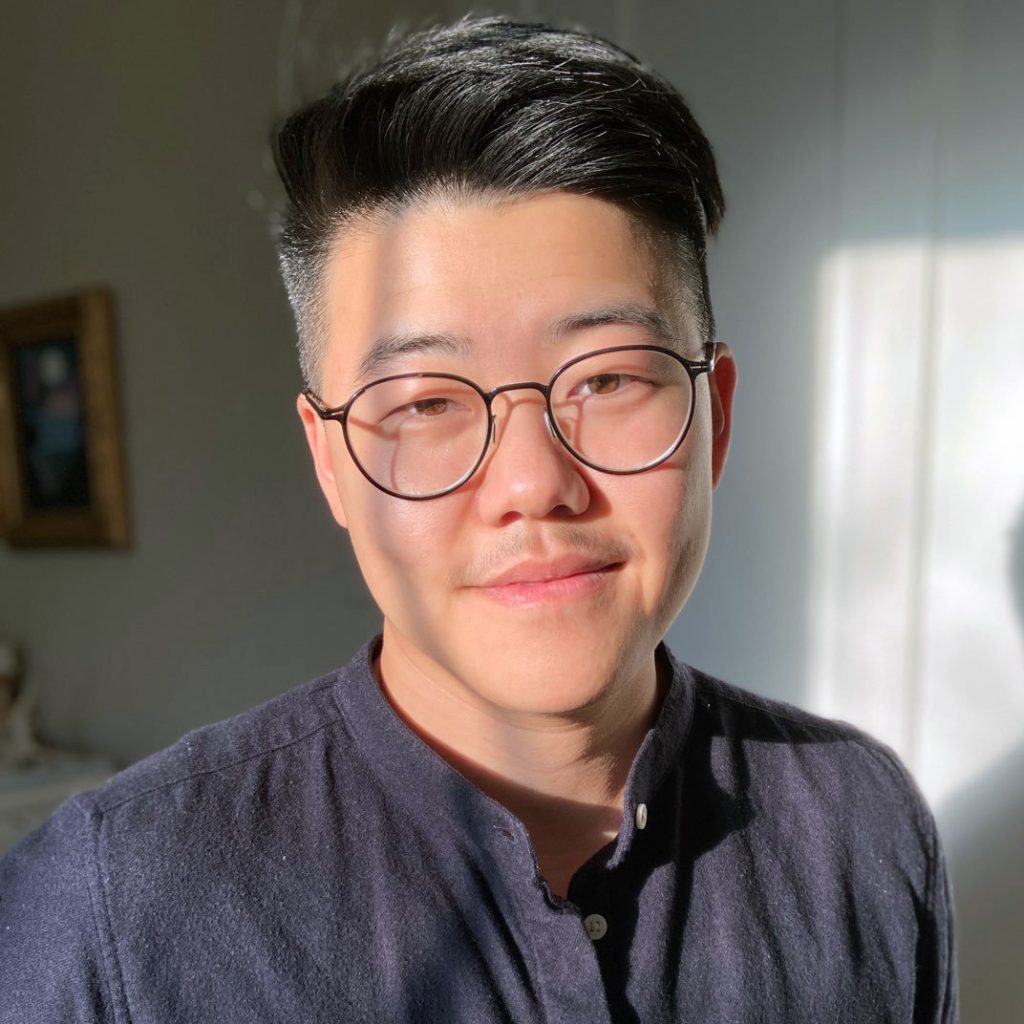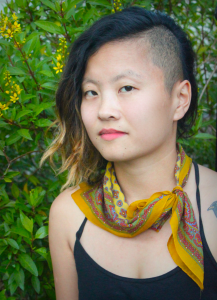
Tiana Nobile talks with Yanyi, whose poems “Dream of the Divided Field,” “Detail,” and “Catullus 85” appear in NER 42.3, about fragments, memory, and choosing uncertainty over mastery.
Tiana Nobile: I recently attended your Kundiman class, “Architectures of Resonance,” and really loved what you said about fragments. While many often think about fragments as lacking or incomplete, you said, “The fragment is not threaded to nothing; it’s threaded to the silence that surrounds it.” Could you talk about the role the fragment plays in your new work? I’m also curious to hear what you think about the relationship between the fragment and translation, particularly when translating classic work such as “Catullus 85.”
Yanyi: Oh, to me fragments and silence are everything. One action, one image, one happening is connected to another, and so on and so forth. Fragments are what I have when sense does not serve anymore—when sense is unreachable. A fragment marks what is there. Something to be returned to when you are strong again. So, in grief, a small occurrence in “Detail” dominoes into a larger contemplation of loss. The many fragments in the titular poem of my second book, “Dream of the Divided Field,” create a frame into a story, an experience still difficult to broach. The fragment, whatever it is we manage to translate, can make the frame of a window. Silence contains what the reader sees through it. It’s similar in translation. The original poem comes from an experience, a context, that does not exist anymore. My own translation of “Catullus 85” was the epigraph to this book before the final edit. But I wrote “Catullus 85” without thinking of it—I was just attempting to understand an experience in an untitled draft. It was only in rereading the poem, remembering “hate” and “love” and “why” with Catullus, that I saw the parallels. My own fragment, my own context that doesn’t exist anymore. Something I tried to return to when I was stronger.
TN: I’m interested in your exploration of memory and how it shifts based on the person who holds it. In “Dream of the Divided Field,” you write, “Once you leave someone, the dream becomes divided. / Your sense of reality. Their sense of reality.” What would you say is the difference between memory, dream, and reality? Do you think the fragment better serves one or the other?
Y: All three of these things have complex effects on each other, and the fragment is part of each of them. I would say that reality is what happens in the world—the “factual.” Unfortunately, human access to what’s happened is limited by memory, which I learned in an undergraduate neuroscience class is reconstructed every time one recalls something. So in one way it is not that far from dreams that are involuntary reconstructions of not only reality, but the imagined worlds we make while reading, say, a fantasy novel. And then there are dreams that have become inscribed onto reality as the very ways we perceive it—the imagination of white supremacy, for example, which factualizes non-white people as beasts in the split-second before recognition. Or Said’s Orientalism, in which whole systems of knowledge have been created using fragments of others’ symbols, practices, and lives, but ultimately have not very much to do with them. But these imagined facts have and have had consequences in reality.
TN: You’re so right that regardless of what we perceive or imagine, our lives are still impacted by how we experience memory or others’ perceptions of us/their own memory. In “Detail,” you mention this idea of “fact” but you immediately undermine it as “small”: “I’m wiping the glue off an old book, / a fact so small who knows if I would have / told it to you.” Relationships often become defined by a litany of small facts. What can a detail like this reveal about a relationship?
Y: It reveals both everything and nothing! On the one hand, witnessing a detail is an extraordinary intimacy that a bird’s-eye view could not provide, but without the rest of the painting, the rest of the relationship, it takes on a life of its interpretations. Moreover, a relationship is a constantly changing thing—it exists in the actions and beliefs of those in it. Without everyone, a relationship remembered can only be a detail. So this poem plays with the idea of the detail. What is it—that is, what is left? The book, the act upon it, the impulse to share it, the speaker, the poem itself—they are all details making a life in the after.
TN: You mention details again in “Dream of the Divided Field”: “In a voicemail, you’re walking downhill / to your house, a detail I now know about.” There’s a recurring tension between what is known and not known, the details of the past, one’s memory of it, and how they shift over time. You write, “The dream reminds me: what I see and what I know / are never settled.” How do you reckon with the tension between the before / during / after, particularly when they become so collapsed in the re-telling?
Y: I accept the uncertainty over mastery, I think. And I try to be with what I’m seeing while it’s still in front of me. What I see becomes what I remember, what I remember ebbs into what I know, and what I know changes what I see. Poetry holds what stays for me. I know, for example, that I prefer to love over anything else.
TN: I love the idea of a poem being the container for what stays, for what we hold on to. Do you arrive at the page already knowing where you want to go, or is it more spontaneous—do you arrive through the writing of it?
Y: Poems like “Detail” come like unannounced guests, but they are only beginnings. Very rarely has a poem come to me in its entirety. The only poem in recent memory that’s come to me whole was “Translation,” which appears toward the end of the book. Usually I have to follow the music which carries a feeling, then somehow put that into words. It’s all chasing after the tip of the tongue. The more tools and language I have, the easier it is. And even then, the poems are sometimes mysterious even to me, until later. Often I live a little more life, and retroactively I understand the poems I have written in the past. Poems that are more intentional, like “Catullus 85” and “Dream of the Divided Field,” are me thinking through things I cannot know clearly. I think “arrive” is the right word here. That feeling after a long journey. I’m not writing to uncover a truth—I’m writing to be with the change that is already happening to me; change that requires new language to be understood.
TN: Speaking of “living a little more life,” how do you spend your time when you’re not poeming? What is bringing you joy these days?
Y: Well, my partner and I are welcoming a dog home next week. I look forward to responding to letters for my writing advice column, The Reading. I enjoy baking (most recently this Taiwanese Castella Honey Cake). Taylor Swift’s new reissue of Red just came out, so of course I’m spending time with her. And, somewhat counterintuitively, death has been bringing me joy. My grandmother passed away this week. I’m remembering her and appreciating how much my life now resembles the life I had with her when I was young. When I cook or dream of a garden or soak my feet at night, I feel part of a long line of quiet pleasure that she gifted to me. It isn’t very glamorous, but it is meaningful. Often beyond measure.

Tiana Nobile, a poetry reader for NER, is the author of Cleave (Hub City Press, 2021). She is a Korean-American adoptee, Kundiman fellow, and recipient of a Rona Jaffe Foundation Writer’s Award. A finalist of the National Poetry Series and Kundiman Poetry Prize, her writing has appeared in Poetry Northwest, the New Republic, Guernica, and Southern Cultures, among others. She lives in Bulbancha, aka New Orleans, Louisiana. For more, visit www.tiananobile.com.